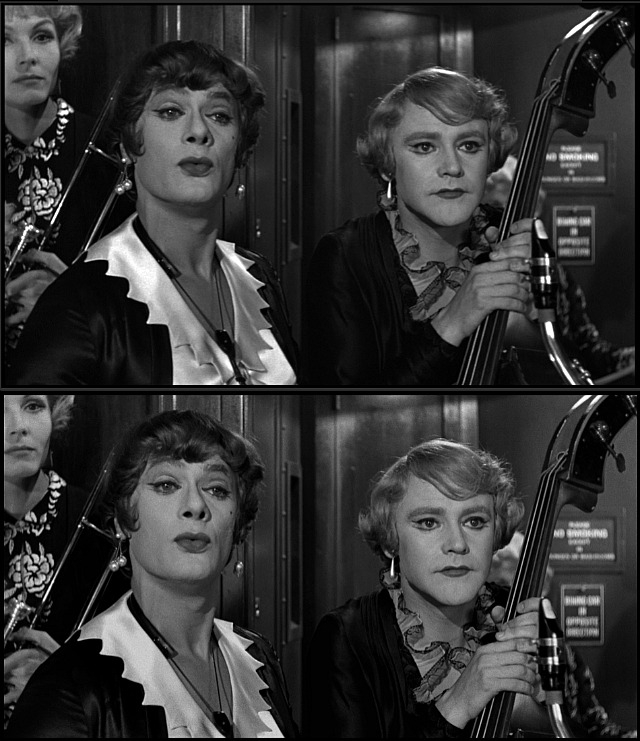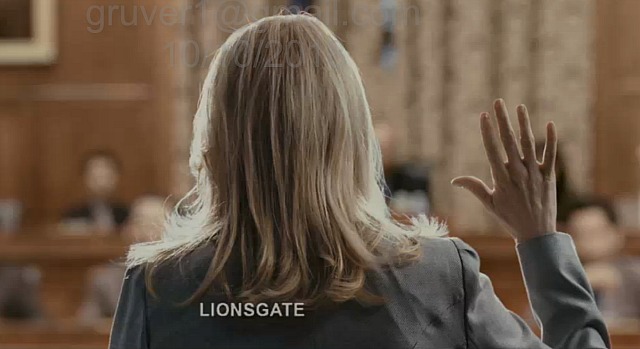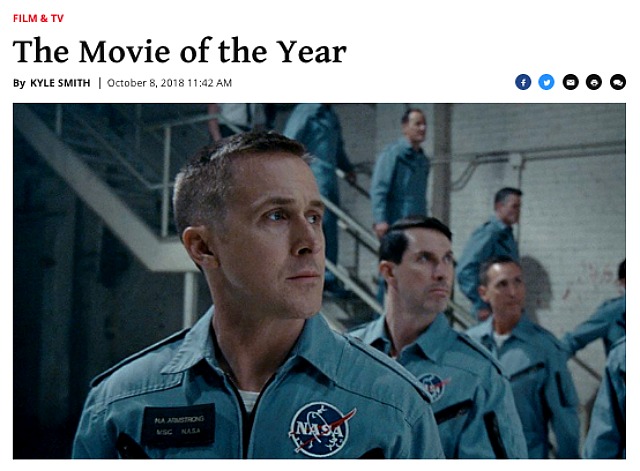Up until yesterday there was some concern that traditional American loyalist types might be cool to Damian Chazelle‘s First Man (Universal, 10.12) because it doesn’t show the American-flag-planting moment on the surface of the moon.
But now that National Review critic Kyle Smith is calling First Man “easily the best film I’ve seen so far in 2018, a standout in everything from the acting to the sound effects,” has this concern about right-wingers dissipated? You might be excused for thinking so. Smith foresees it “earning something like eleven Oscar nominations next winter“…well, all right!
“First Man isn’t overtly a left-leaning or unpatriotic movie,” Smith writes, “but its reserved, interior quality (it actually ends with two people staring silently at each other) is consonant with the tastes of liberals, whose unease with flag-waving is richly rewarded by the film’s omission of the moment when Armstrong plants Old Glory on the Moon.
“Does that choice bother me? Not really. The movie’s focus is simply elsewhere, with overlooked aspects of the mission. Fresh, contrarian approaches to familiar material give First Man so much energy that despite its contemplative character, two hours and 20 minutes pass briskly.”
But hold up there. There are also signs of trouble from certain pockets of left-wing Hollywood culture. First Man isn’t emotional enough, some are saying.
I’m starting to fear, in fact, that despite film festival raves, First Man might do a fast commercial fade with Joe and Jane Popcorn.
A critic friend says “the H-word seems operative here. I know a number of people who say they ‘hate’ it. And I find that beyond baffling, because leaving aside the fact that I love the movie, what’s there to ‘hate’ about First Man?”
All I can figure is that Chazellle’s film operates so closely to the personality of the low-key Neil Armstrong that to some it feels chilly and remote-feeling and a little too tech-heady.
This isn’t a problem for me at all. One thing I really like about First Man is Chazelle’s refusal to do the Ron Howard thing by cutting to wide or establishing shots for standard perspective’s sake. Instead Chazelle keeps us inside the cockpit seat alongside Neil almost the whole time,. All I can figure is that this strategy has made certain viewers feel claustrophobic or something.
Read more
















